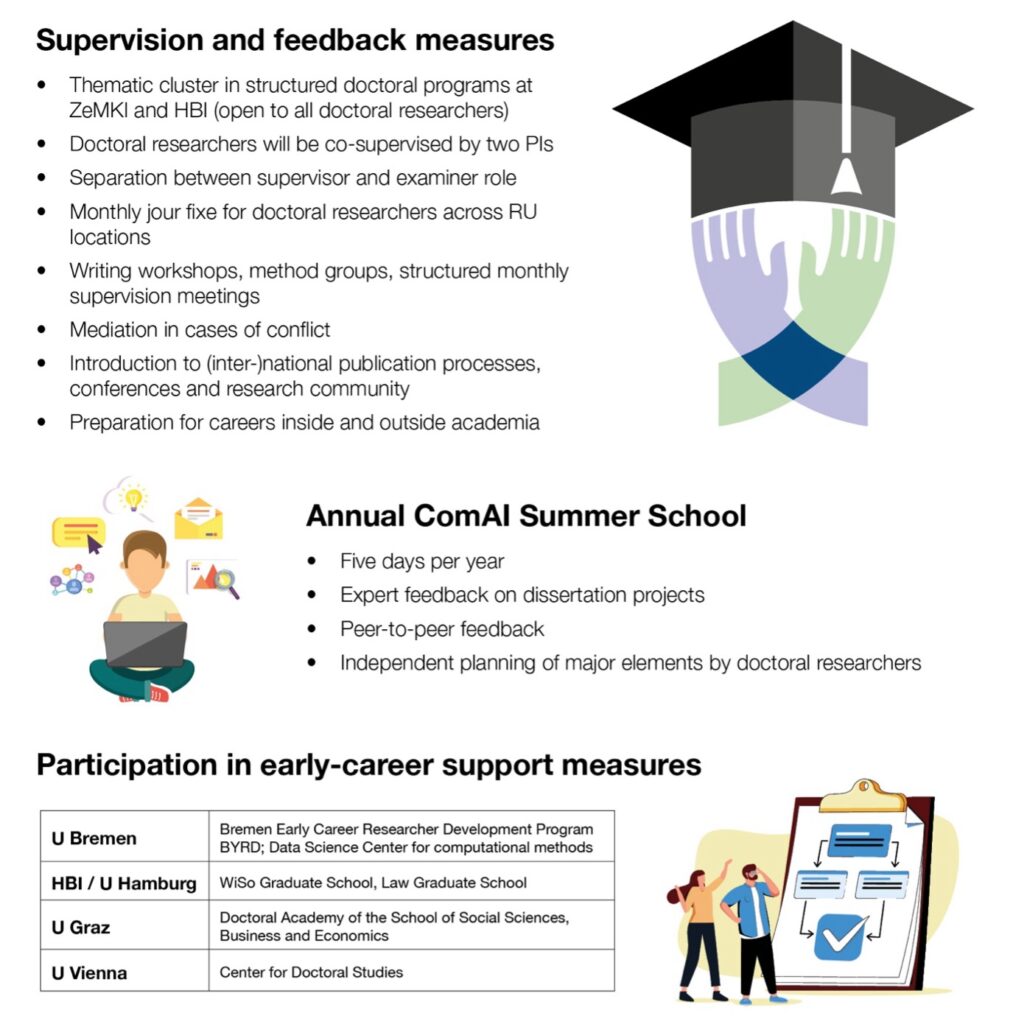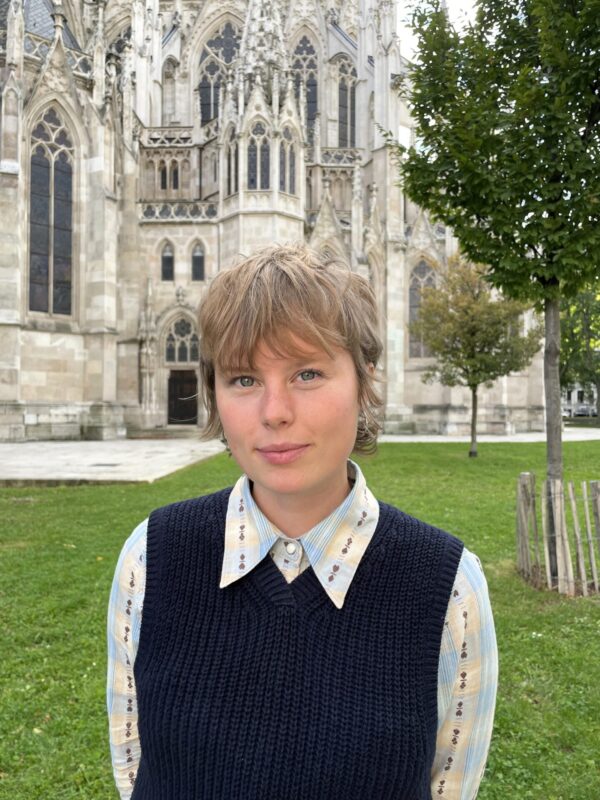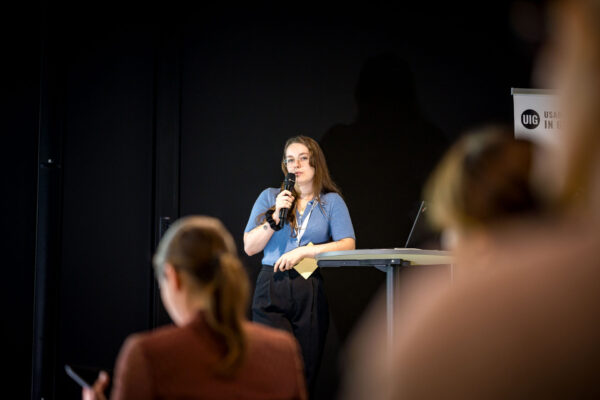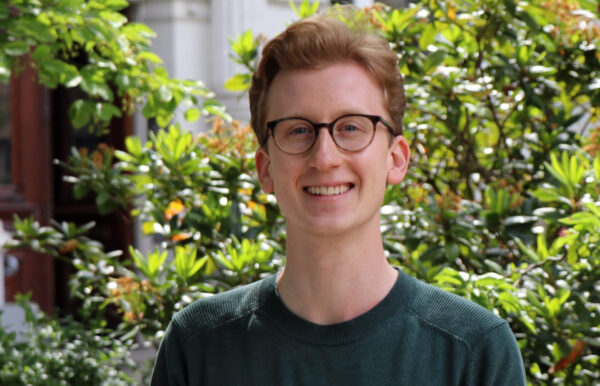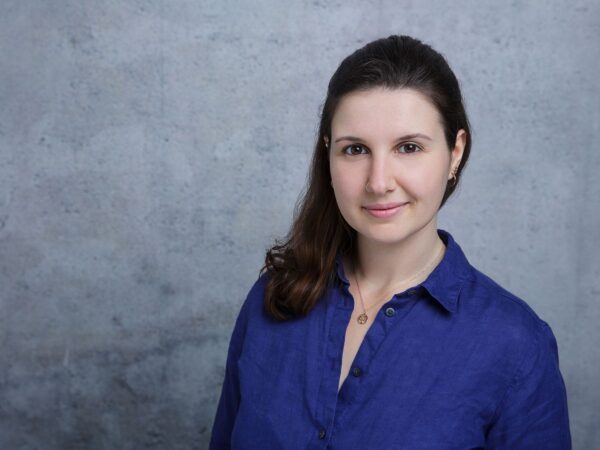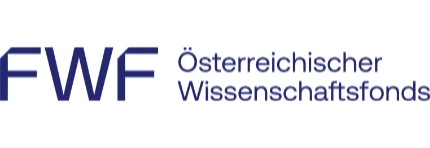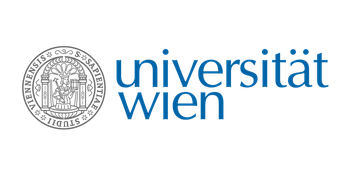Being a doctoral researcher at the Research Unit
How we support your career as a young researcher
In view of the dynamics of current developments in the automation of societal communication, we expect a large number of different jobs with a focus on ComAI to be created in science, business, administration, and civil society in the future. We therefore want to prepare our young researchers for careers within and outside academia.
In the first funding period, we are starting the research unit exclusively with research assistants who want to pursue a doctorate. Accordingly, we initially concentrate on the doctoral career stage. Our basic philosophy here is to combine intensive supervision and clear structures with sufficient freedom.
The doctoral researchers of the Research Unit will jointly form a thematic cluster in the structured doctoral program of the ZeMKI, which is open to all scientific collaborators at the locations involved in the Research Unit. The structured program is characterized, among other things, by supporting workshops for exposé preparation, method groups and topic clusters, structured monthly supervision meetings, and offers for mediation in cases of conflict. Particularly in the domain of computer-aided methods, the doctoral program is supported by the Data Science Center of the University of Bremen and the DataNord competence center in addition to its own expertise in the research projects. In accordance with international standards, there is a strict separation of supervision and assessment of the doctoral projects.
The existing institutional support structures for early career researchers such as BYRD (U Bremen), Hamburg Research Academy (HBI, planned), the Doctoral Academy Graz (U Graz), and the Center for Doctoral Studies (U Vienna) are available to the doctoral candidates of the research unit. To ensure mutual support between the participating locations, there will be a monthly jour-fixe organized by the coordination project where all doctoral researchers can exchange their experiences.
In addition, an annual ComAI Summer School is planned, for which external young scientists can also apply. This summer school has two objectives: First, it is about joint coaching for dissertation projects. Second, we want to give doctoral researchers the opportunity for early independence by allowing them to organize parts of the summer school themselves (e.g., selecting and inviting external experts).In the fourth year of funding, we are planning a series of information events on practical fields of automated communication as part of our summer school to give doctoral researchers the opportunity to switch to non-university practice after their qualification if they wish to do so.

